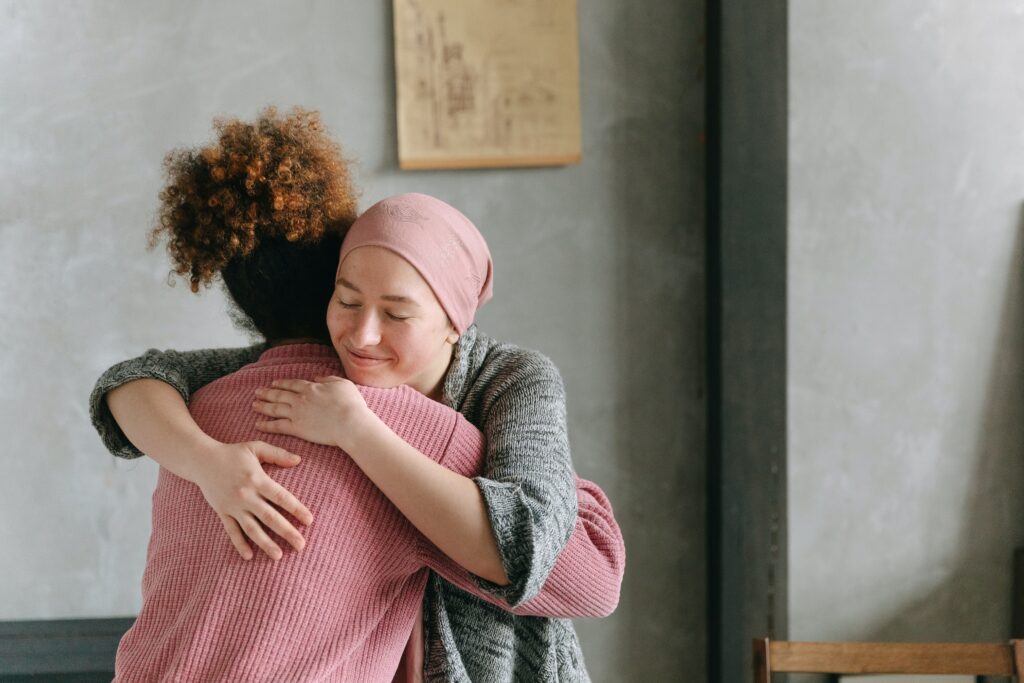Why now?
Just look around you.
Pain and suffering exists everywhere: poverty in the midst of plenty, the climate crisis, pandemics, conflict and war. Humanity feels detached from its humanity.
The moment is NOW for us to come together, think together, and act together to emerge from these multiple emergencies.
Why compassion?
The essence of being Human is to be relational. We are inextricably interconnected and interdependent within the web of life. Our common ancient ancestors in Africa – the cradle of humanity and of the first human civilization – learnt this truism and encoded it in their understanding of what it means to be human. Ubuntu/Omenala and many such expressions of our essence as human beings, enjoin us to always live by the injunction that Motho ke Motho ka ba bangwe Batho (Umtu u’ngumtu nga’banye abantu).
This truism came to life during the COVID pandemic when supportive human relationships became key enablers of resilience and eventual recovery amongst the poorest. Africa defied scientific predictions of calamities from millions of deaths from COVID. Why? Not yet understood to date, but suggestive evidence points to compassion/Ubuntu that moved neighbours to take care of one another, including those most vulnerable and living alone.
How?
Emergence from our multiple crises demands compassion NOW. Compassion starts with journeying into the self to reclaim our essence as relational beings. We are at our best when we are at peace with ourselves and all other human beings within our ecosystems that are part of the web of life.
Conversations with our inner-selves are enablers of conversations with others to connect at those deeper levels. We learn to cast away our fears of the unknown, fear of failure, and fear of the other because we discover the other as inextricably part of us. Fears that keep us apart vanish in the face of our determination to return to the essence of our being – interconnectedness and interdependence – the I am because you are! Femininity imbues women with fearlessness and trust in the unknown as expectant mothers and through the agony of childbirth and lifelong care of their own children that enable the extension of this care to all children and humanity. How do we cultivate this in the face of patriarchal dominance?

The African conversational style is set within a circle where everyone is on eye level, and body language is an essential part of the language of communication. In a circle all are equally included, listened to, to contribute to shared understandings and common goals. In a circle we bring two ears and one mouth – we learn to listen at least twice as much as we speak!
Conversations are essential to thinking together, identifying complementary strengths and talents, to address common problems – Letsema/iLima is only possible in a spirit of trust and mutual support. The work of building trust is central to unleashing the capacities for collective action. Elinor Ostrom work on ‘Governance of the Commons’ is a powerful example.
As a global community we are TODAY called to be the champions of Compassion/Ubuntu and to challenge ourselves, families, communities, societies and the whole of humanity to rise to our responsibilities to restore the essence of our humanity. Effective actions to combat climate change and restore our ecosystems is not possible without working together in the spirit of compassion/Ubuntu. Effective vonflict resolution and peace building requires being able to feel what those suffering from wars and conflict feel. Global equity where wealth is shared and all enjoy wellbeing, requires seeing yourself in all other human beings alive today, and yet to be born. Compassion is a requirement of sustaining life as we know it today, and for doing better.
Indigenous communities everywhere in the world continue to discharge their responsibilities as stewards and protectors of ecosystems and natural resources such as watersheds and ancestral sacred sites, despite scarce resources and persecution by the extractive industries that drive global inequities and climate change calamities. Those benefiting from investments in extractive industries are called to distance themselves from them or be strong advocates of change towards more responsible industrial investments. We have much to learn from indigenous cultures across the globe. Indigenous science needs to be restored to its place at the centre of what it means to be human. The current human suffering is the price we are paying for the attempts to erase indigenous science as the base of human civilization.
Governance of the Global Commons requires Compassion/Ubuntu
Our world is at grave risk of multiple collapses. It is in our hands to contribute to a different outcome, and thereby bequeath our children’s children a better world. It starts with freeing our minds and souls to rise to our essence of being at heart compassionate.
Linking hands as a human race is our natural instinct. We simply have to follow our hearts, then our personal, professional and political acts would be imbued with the values of Ubuntu/Compassion. Imagine the impact of a Global Compassion Coalition that symbolically links hands across the globe!
Let’s just do it! Let’s make this a turning point for humanity to return to its essence, and to become effective stewards of all global common goods! It is not only possible, it is already happening out there!
Are you ready to be part of it?
Dr Mamphela Ramphele is a member of the GCC Board, a medical doctor, academic, social anthropologist, and global public servant. She is writing in her own capacity.
